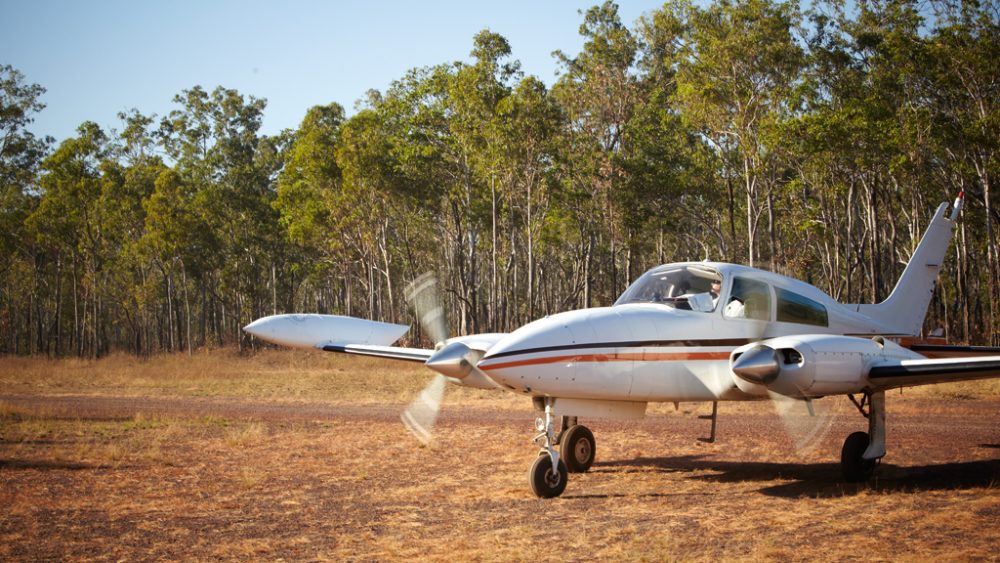
Light aircraft arriving at Mount Borradaile
It’s a 350km drive from Darwin to Mount Borradaile, but most arrivals here are by light aircraft. A dirt strip has been hacked out of the scrub; a dusty red runway lined by a dozen species of flowering trees.
Frogs and snakes loiter in the foliage, usually keeping out of harm’s way, while the dreaded green ants build nests from the leaves.
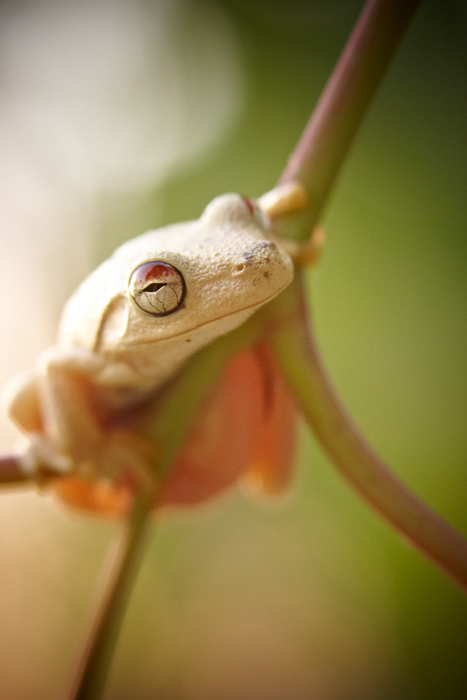
A Tree Frog at Mount Borradaile
These aggressive little critters will take on anything, able to mobilise en masse and deliver an acidic bite. The traditional people of Arnhem Land know how to handle them, quickly.
Crushing a green-ant nest will release a chemical concoction that purges the sinuses if you have a cold, but sometimes a treatment is worse than your troubles. Green ants are, at least, industrious, and it’s a trait shared by Max Davidson. Living in a remote part of Arnhem Land means you have to sort out your own problems, like fixing a vehicle or repairing a roof.
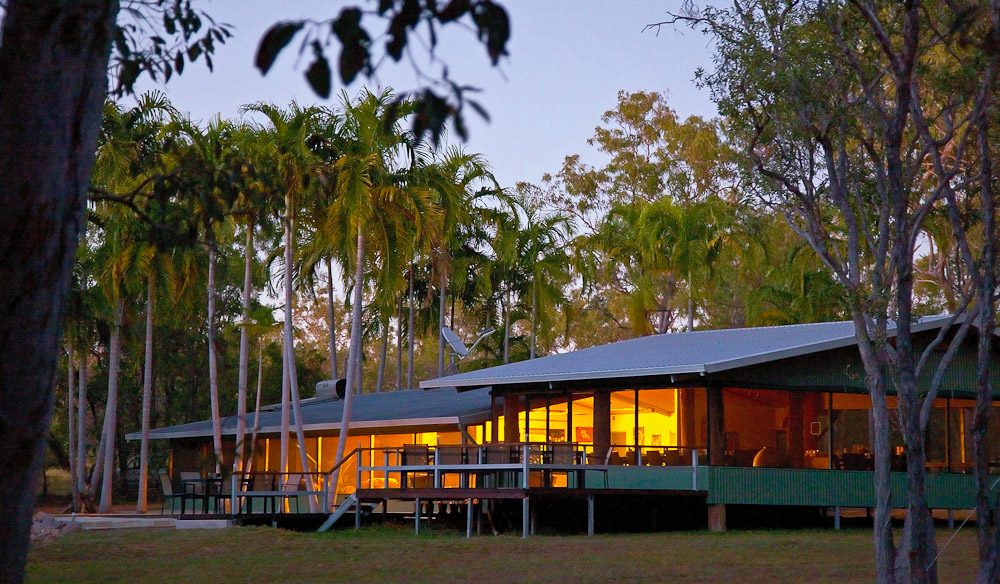
The camp at Davidson’s Arnhem Land Safaris, NT
But given a few years and the cooperation of the local Bunidj clan, Max managed to sort out an entire safari camp, a cosy little place in the bush that offers shelter from the elements and nourishment for the soul.
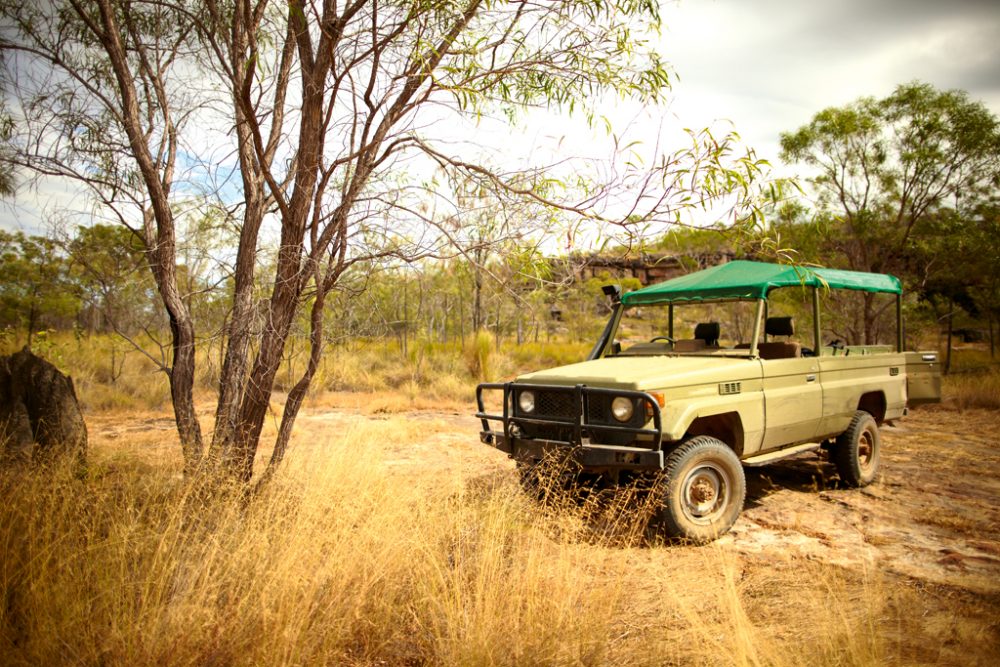
Safari vehicle Mount Borradaile, Arnhem Land, Northern Territory
Max understands that places have spirit, they have stories to tell, and since the 1980s he’s been learning those stories at Mount Borradaile. Some are handed down through generations and others are his own.
A 6m-long ochre painting of a rainbow serpent stretches across the roof of one local cave, sheltered from the elements for about 8000 years. Aburga is the local name for the serpent and he has a central role in the stories of creation here, having been responsible for the current position of rivers and mountains.
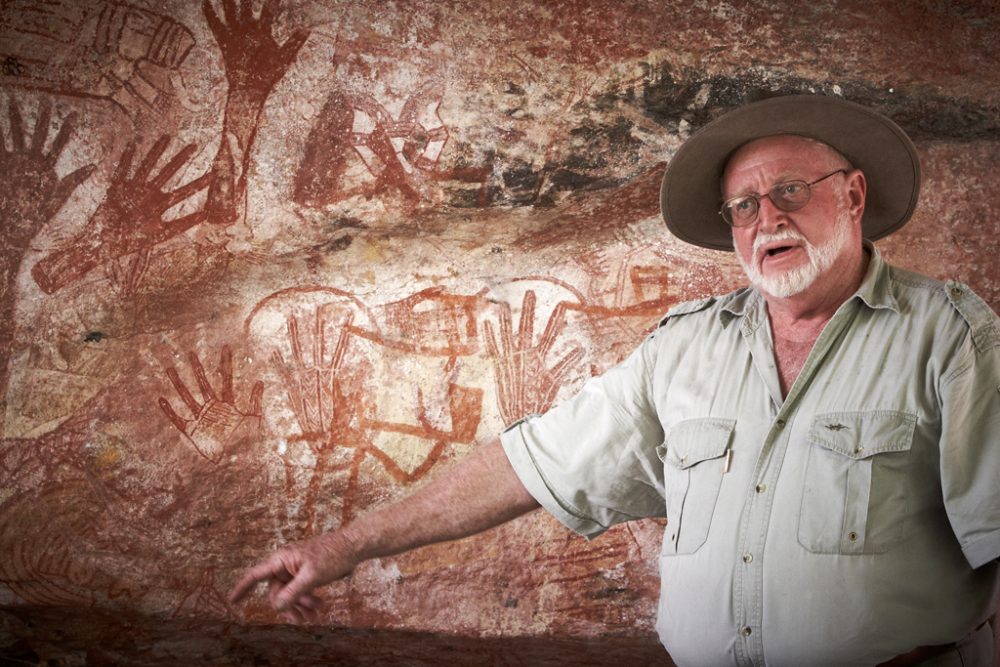
Max Davidson showing rich Rock Art
Seeing the rock art of Mount Borradaile through Max’s eyes gives insight into the traditional stories of the art, plus a wider understanding of how remarkable these sights are.
Dozens of secluded rock galleries exist around the billabongs, often reflecting the wildlife of the billabong and how it changes through the seasons. This collection of art is more impressive than Kakadu’s, and without the crowds.
Wildlife is more than just bush tucker here. Decades ago, the local clan put a stop to hunting with rifles, and the result has been the wildlife’s growing tolerance for humans as you tour the wetlands.
Cooper Creek runs through the land a few kilometres from the safari camp, and forms two major billabongs that flood in the wet season. Jabiru, brolga, eagles, ibis, herons and about 270 other species of birds thrive in the area. Max has a few small boats to get out on the water and up close to the birds.
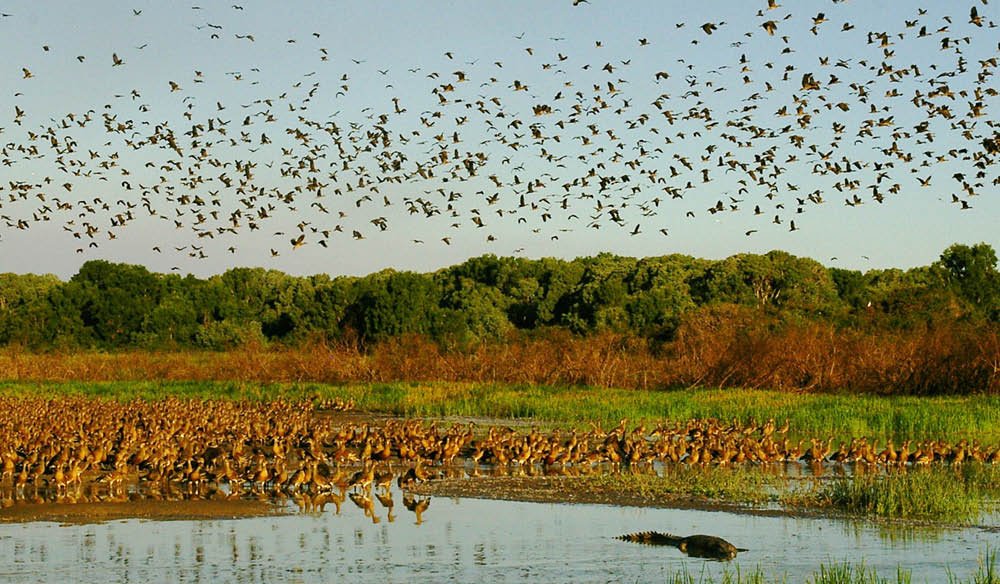
This landscape of rugged ranges is fringed by idyllic billabongs, boasting a stunningly beautiful wilderness.
Having an entire wetlands ecosystem to yourself, with an experienced and enthusiastic guide and a bottle of bubbly for sunset, is a very modern story for this ancient landscape.
At day’s end, guests can watch the last light set across the flood plains, the sun turning red from smoke in the atmosphere. Lighting fires is part of the traditional land management process.
Crocodiles have been a feature of the Mount Borradaile landscape for even longer than burn-offs and rock art. The prehistoric predators glide through the reeds in search of barramundi and flop themselves onto mud banks to warm in the sun.
Max may look a little weathered by the elements up here, but he’s nowhere near as leathery as a big adult saltwater crocodile.
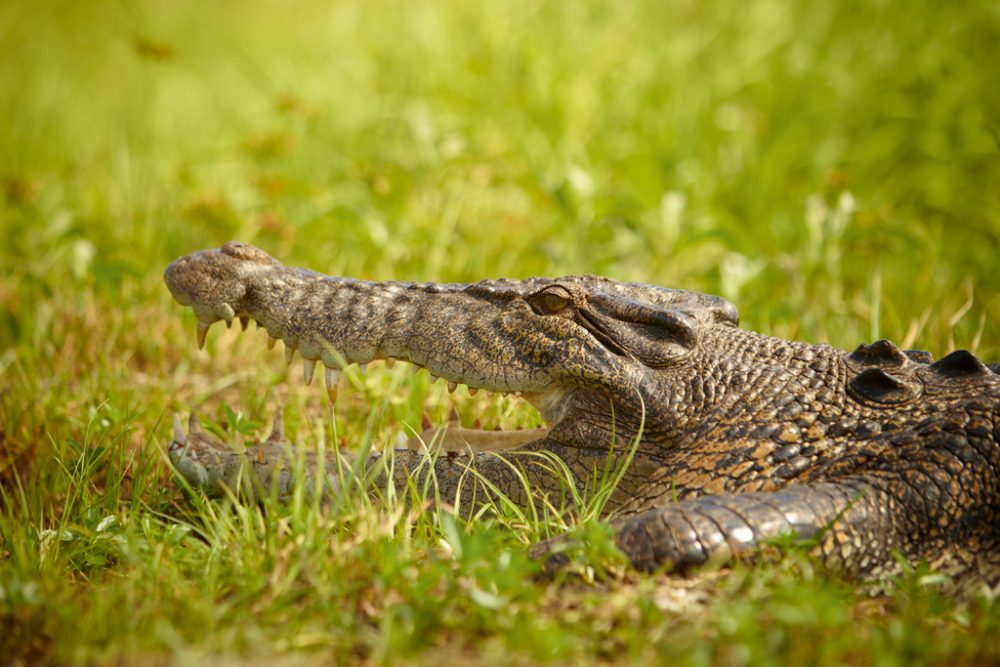
Saltwater Croc at Mount Borradaile, Arnhem Land
Max has an eye for the little creatures too. His favourite surprise near the camp is the Leichhardt’s grasshopper, a brilliant orange and blue insect that spends most of its life bound to a single bush.
I had heard stories about these creatures from Indigenous tribes in Kakadu; a legend says the grasshoppers are the children of the Lightning Man, Namarrgon. When you see them on the wing then you know lightning will arrive soon.
Even standing within a few metres of the grasshoppers I still couldn’t spot them, but Max could. These little guys are one of his stories really, one of many discoveries he made for himself and enjoys sharing with travellers.
The safari camp is a place of luxury and comfort, with fine cooking and recently upgraded cabins, but the story of Mount Borradaile is one of fine art and wild creatures. Hidden gems such as Leichhardt’s grasshoppers or the black-footed rock wallabies add even more colourful details to the wild landscape. With the help of Max Davidson, anyone can share in the treasures of Arnhem Land.
Where? Davidson’s Arnhemland Safaris eco-lodge is at Mount Borradaile in Arnhem Land, NT.
Notes: The camp offers small-group guided tours including rock-art viewing, bush tucker and Indigenous cultural tours, billabong cruises, bird watching, catacomb tours and freshwater barramundi fishing at Cooper Creek (included in tariff). If you’re a keen angler, come in April or May, as the run-off from the wet season makes this prime fishing time.
Contact: (08) 8927 5240; www.arnhemland-safaris.com
For the  best travel inspiration delivered straight to your door.
best travel inspiration delivered straight to your door.
LEAVE YOUR COMMENT